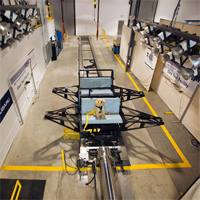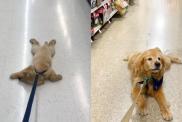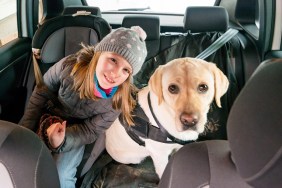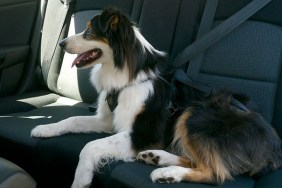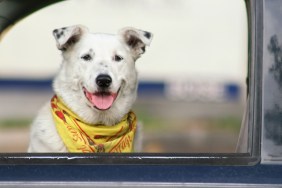Nearly a decade ago, automotive engineer Lindsay Wolko was on a car ride with her dog, English Cocker Spaniel Maggie, in the backseat.
That’s when the unthinkable happened — a vehicle in front of Wolko’s stopped suddenly, and Wolko had to hit the brakes quick to avoid a collision. But as her car screeched to a halt, inertia took over. Poor Maggie slammed into the back of the driver’s seat, severely spraining her spine and hip.
A responsible dog owner, Wolko thought she’d taken every precaution possible to protect her dog in the event of a car accident, but the pet safety harness Maggie was wearing did nothing to secure her.
After doing a bit of digging on her own, she realized something surprising—unlike the vehicle safety equipment designed for human passengers, the vast majority of pet safety products were not tested before their release. And what’s worse, there seemed to be no standards or uniform testing procedures for the products owners trust with their pets’ lives.
“Because of the lack of oversight and the lack of testing in the industry — it is quite the ‘Wild West’ out there — you are consistently putting consumers and their dogs at risk,” Wolko explains.
Determined to provide quality control for pet safety products, Wolko started a nonprofit organization in Reston, Va., called the Center for Pet Safety (CPS). But before she could start testing any pet safety harnesses, Wolko had to design her first crash test doggie: a 55-pound anatomically correct crash test Bulldog with computers instead of internal organs and the same center of gravity as its living canine counterpart.
Flash forward two years and CPS has a whole slew of crash test pups, including the 75-pound Golden Retriever, 45-pound Border Collie, and 25-pound Terrier mix at the center of a recent pet safety harness study that has dog owners everywhere talking.
Subaru, an automotive company that manufactures its cars to pet owners, partnered up with the Center for Pet Safety to conduct the landmark crash test.
Of the seven pet harness brands tested in the study, only one brand — the Sleepypod Clickit Utility Harness — ranked as a “top performer.” The $89.99 Sleepypod was the only harness brand that consistently kept each crash test doggie on the car seat for all three weight classifications.
The other six brands exhibited serious performance flaws. In fact, three of the brands tested showed “catastrophic failures,” sending the stuffed test dogs flying like canine projectiles in the test vehicles.
“This was the only brand that consistently kept the dog on the seat for every test,” Wolko says of the Sleepypod Clickit Utility Harness. “It prevented the launch of the dogs and prevented side-to-side and fore-and-aft rotation of the dog and helped keep the spine fairly stable.”
Needless to say, Subaru plans to include the Sleepypod in their vehicle gear catalogue in the near future.
These harness tests are only the beginning of what CPS hopes to accomplish. Soon they plan to test car crates, carriers, and barriers. A comprehensive study of pet lifejackets is also on the organization’s agenda.
For more information on how you can keep your dog safe, or to read the 2013 Harness Crashworthiness Study Summary Report in its entirety, check out the Center for Pet Safety website at CenterforPetSafety.org or follow the organization on their Facebook page today.
Sources: CenterforPetSafety.org, Product Design & Development, Wired.com
